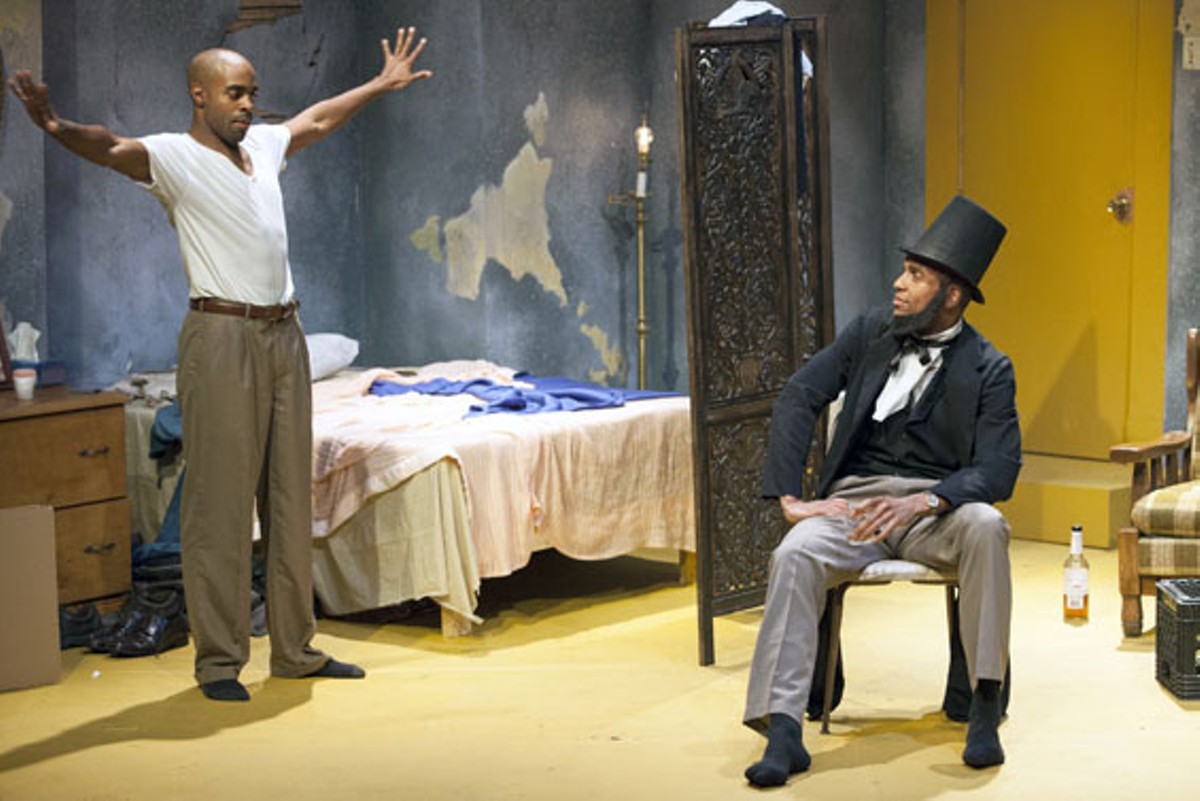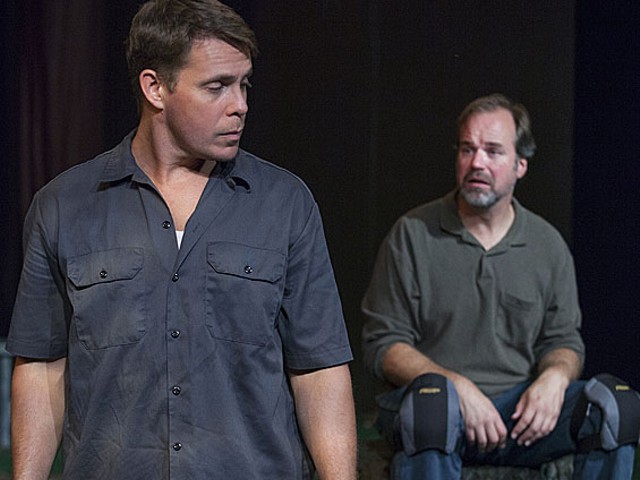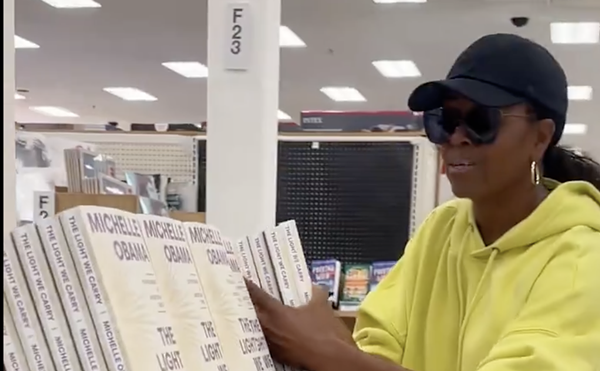There's a frequently uttered phrase in Suzan-Lori Parks' Top Dog/Underdog that gets under the skin with each repetition: "I'm the be all, end all." Brothers Booth (Chauncy Thomas) and Lincoln (Reginald Pierre) both say this line, and the deeper we go into the Pulitzer Prize-winning play, the more the meaning shifts. In the first instance, Booth uses it to describe his hope of becoming the best three-card monte hustler in the city. The last time he utters it, it's clear the phrase has a darker meaning: I am all there is, and I will destroy all there is. In a play that is rich with evocative turns of phrase and subtle shades of meaning, this one somehow terrifies more than other. What happens to a dream deferred? Top Dog/Underdog shows you, in graphic, searing detail.
Booth's dream of becoming the king of the hustlers is all he has. He lives in poverty in a cruddy one-room apartment with his older brother, Lincoln. Lincoln works as an Abraham Lincoln impersonator in an arcade, a job that requires him to wear whiteface and a fake beard while being assassinated again and again by paying customers. But once upon a time Lincoln was the acknowledged master of three-card monte, a calling he abandoned after one of his crew was shot on the streets. Lincoln has sworn off even touching cards, which Booth can't comprehend. His brother could be making thousands of dollars every day — why doesn't he return to the hustle, or at least teach Booth how to run the game? Booth needs the help desperately; despite all his ambition and bravado, he's terrible at handling the cards. Booth's sole motivation is somehow cajoling Lincoln into picking up the cards again.
Director Elizabeth Helman draws this story out with carefully weighted tension. Booth and Lincoln are doomed from the beginning — their names are your first tipoff — but the causes of their destruction are what must be clarified. What kills young black men? Parks tells this story in allegorical language and surprising imagery from the very opening. While fumbling his cards, Booth works on his patter: "Pick the dark deuce, that's the loser." Lincoln comes home in his presidential mufti and Booth draws his gun; the brothers discuss the invisible forces that drove their parents to abandon them in their youth. These elements are their be all. They are also their end all.
Pierre and Thomas both do sterling work here. Pierre's Lincoln is a man holding everything in abeyance; his failed marriage, his talent with cards, his brother's urgent need to dominate him. It's a subtle performance, one that creeps up on you with its hidden strength.
Thomas' performance is just as subtle, despite the volcanic fury that is Booth's lot in life. There are times his shouting sounds like singing, a feat as impressive as it is eerie. But it is Thomas' few moments of quiet when you really see — when you at last understand and know — Booth. After he loses another vehement argument about Lincoln picking up the cards, both brothers retire in surly silence to sleep. Booth lays awake, then looks at Lincoln, who sleeps in a chair a few feet away. Booth goes to him, and drapes a coat over his older brother, the only person in his life who hasn't abandoned him. That's the Booth underneath his bluster and violence, lonely and kind. That's the Booth you'll mourn when the shooting's over.






